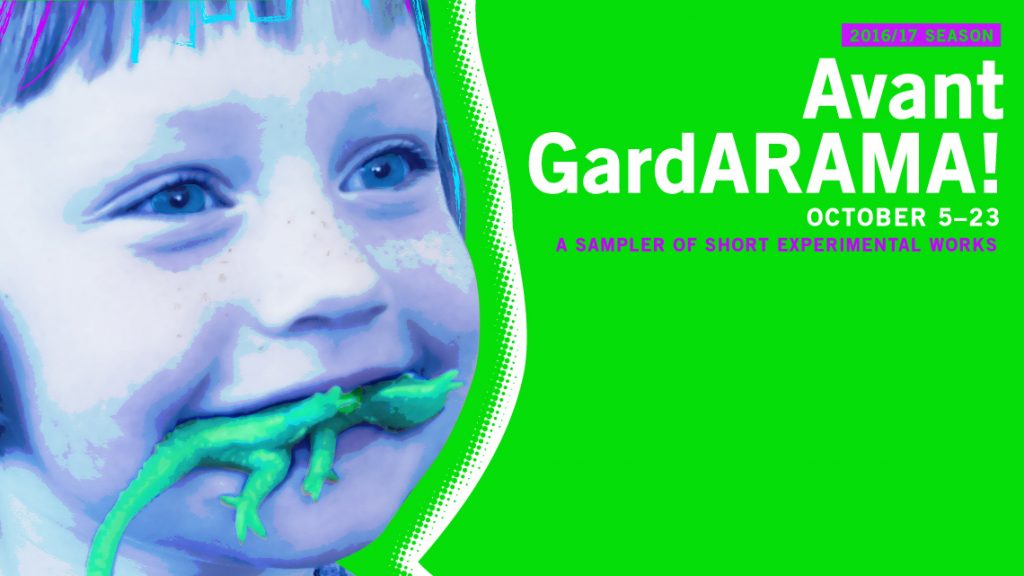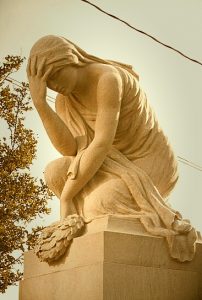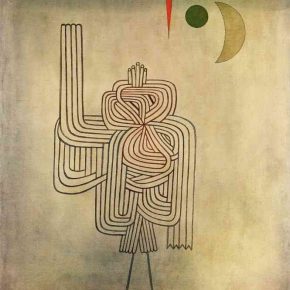Striking a Nerve
Review by Christopher Bernard
AvantgardARAMA!
The Cutting Ball Theater
The EXIT on Taylor
San Francisco
The Cutting Ball Theater, one of San Francisco’s most interesting companies, opened its eighteenth season this fall by resuscitating its old AvantgardARAMA series, quiet since 2008, with an anthology of seven short pieces, some of them more or less “plays,” in the traditional sense, some of them more akin to performance art or the kinetic theater explored by such groups as foolsFURY.
As we have come to expect from Cutting Ball, the evening was stimulating even in pieces that only half-worked. There were no masterpieces but also no flops. There was the usual air of over-earnestness and political correctness that mars so much of San Francisco performance, as though art in itself were never quite enough, it always must always prove its virtue (no doubt a cross between the curse of foundation grants, the eternal American Puritanism even among the promiscuous atheists of the left, and the political hysteria that lies like a perpetual fogbank over the City by the Bay); nevertheless, the production is a must-see for anyone curious about the local theatrical avant-garde.
Cutting Ball advertises these pieces as showcasing the directors – which is fine, for the direction generally worked, sometimes keenly so, and in two of the pieces, the directors were either creators or co-creators. But I was a little puzzled. The essence of theater is not the director, as such – it is, of course, the writer (I use this term, in the abstract, to mean any theatrical creator whose work is basically off the stage). Without a writer, there is no theater – and in experimental theater, it is the writer who gives everybody else something to play with in the first place. The director (whose fundamental work takes place on the stage) is essential for any performance. But a director can do nothing with a bad or nonexistent script – that “something” which was created off the stage, however tenuous it may be – even if it was something he or she created.
And when theatrical works are being premiered – or when it can be fairly certain that the audience, for the most part, has never seen other versions of these works – it is the writers (the “creators”) who are being showcased.
That said, the direction was, as we have come to expect from Cutting Ball, energetic and adroit, though it could have made some of the pieces’ points clearer.
Of the seven pieces on show this season, the strongest, arguably, was the third: “An Evening with Activists,” written by Yussef El Guindi and directed by Rem Myers. Guindi is a past recipient of the Middle East America Distinguished Playwright Award, and it’s clear why.
His piece is an absurdist descent into a dysfunctional marriage between a baffled, spineless but well-meaning Arab named Kamal (according to the script, this means “perfection” in Arabic), played by Kunal Prasad, and a lily-white, self-righteous, overbearing, entitled left-wing activist (but is there any other kind?), played by Michelle Drexler, with the late addition of a smug, manipulative, soul-destroying right-wing neocon (played, with convincing malice, by Kevin Glass) and a deus ex machina in the form of a mindful, mind-melding sock-puppet dolphin who, for all his compassion, effectively shows Kamal what having a spine means when you are playing politics (there will be no spoilers here).
Despite an early descent into tastelessness (disappointing husband as convenient vomitorium does not a vital coup de théâtre make) it was the most memorable work of the evening, particularly as it worked most effectively as a play.
This was one of two half-hourish pieces; the other, called “The Wasps” (written by Guy Zimmerman and directed by Paige Rogers), is about Jenna and Barbara Bush, daughters of the opprobrious W. (performed with overbearing accents and white trash panache by Melanie DuPuy and Danielle O’Hare), who are awaiting experimental termination by unknown forces in a laboratory after the world has finally been devastated by climate change.
They chatter absurdities, by turn delirious, lyrical, witty, catty, cold, prideful, sexy, and paranoid, careening between the wise and the bizarre, and dance, dance, dance – as though their dancing is all that still keeps the world alive. A cleverly conceived, sometimes brilliantly written piece (though unnecessarily opaque – I didn’t really get what it was all about till I read the press release later – and the program notes provide no help whatsoever), it goes on too long: from mid-point onward, having made its basic philosophical and poetic points, it doesn’t seem to know where to go, so it repeats itself and ends, as T.S. Eliot predicted the world would, with a whimper. But there is many a bright moment along the way.
The shorter pieces contained some of the evening’s most memorable moments. The evening opened with a duet between the two halves of Virginia Woolf’s divided self (this was written by Susan Terris, directed by Carlos Mendoza and performed by Melanie DuPuy and Danielle O’Hare, who didn’t inhabit British mannerisms as comfortably as the dusty, waspish Texas poses of Zimmerman’s piece).
This was followed by a fascinating if not exactly transparent solo piece (created by performer Valentina Ermeri and director Beatrice Basso), written in English and Italian, that seemed to be about a childhood rape and the breaking of the protagonist’s self into “pezzeti” – fragments that may nevcr be pieced back together. It features a long, thick rope (probably a more germane prop than the teddy bear promised in the press release) that the soloist drags about with her and hugs, as she babbles with a kind of insatiable and insane lyricism – the rope ominously suggesting both a horrifically serpentine phallus and a noose from which the splintered protagonist may one day hang.
A contemporary evening of experimental plays would be incomplete without a satire on the breathtaking crudities of our political moment, in this case woven together in a polyphony of internet videos and voiceovers and performed in dance and oratory by Hillary and Donald surrogates, Louis Acquisto and Suzy Myre, who collaborated with choreographer and directer Katerina Wong. “Crooked and Dangerous” was the evening’s bon-bon.
One of the pieces was written in Spanish (with English supertitles): a lyrical exposition (based partly on Francisco Garcia Lorca’s notorious work of “impossible theater,” “An Audience”) of the vagaries of love between a straight Spanish woman who is infatuated with him and the gay poet, and the terrible way he died, during the Spanish Civil War, not only for his politics, but above all and most brutally for his homosexuality. Maria Velasco wrote (Daniel Sullivan translated for the supertitles) and Sonia Sebastian directed “Lorca al vacio”; Xavier Galando played Lorca and Erika Yanin Peréz played his frustrated paramour.
A charming surprise was “Inkwell,” which in four satisfying minutes gives us a writer who escapes into the rhetoric of the past while his muse – and a crocodile – keep trying to drag him back (in one case, literally) into the flatness, blankness, and integrity of the reality about which he must write. This was written by sixteen-year-old Isaac Schott-Rosenfield and directed by his teacher, Isaiah Dufort. I look forward to more plays from Mr. Schott-Rosenfield. The lesson of his play struck a nerve.
All of the plays in this anthology struck a nerve, some more effectively, some less so. But they all left us something to take home with them, think about and argue over. I can’t think of a better reason to go to the theater.
_____
Christopher Bernard is author of two novels, A Spy in the Ruins and Voyage to a Phantom City, and of the play “The Beast & Mr. James.” His new collection of poems, Chien Lunatique, is forthcoming from Regent Press. Mr. Bernard is also co-editor of the webzine Caveat Lector.



